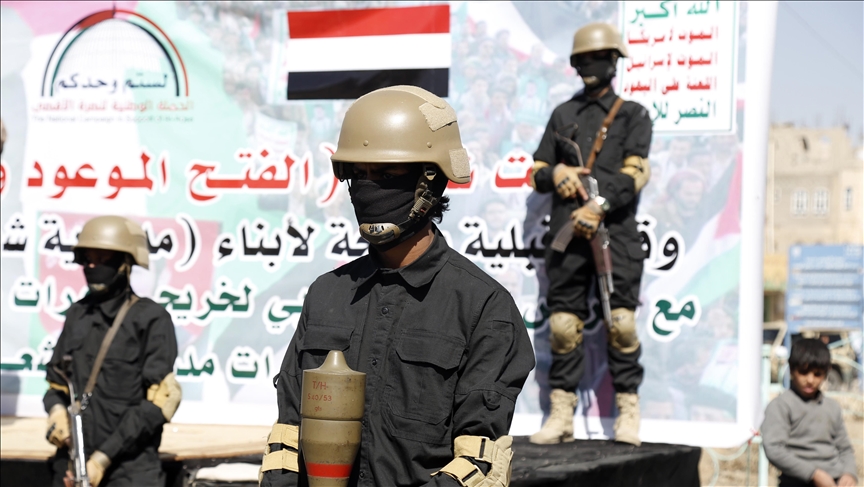ISTANBUL
As the standoff between the West and the Houthis grows in proportion, experts are sounding the alarm over possible escalation in the wider Middle East region, calling for a political solution to the brewing crisis.
The US and the UK have carried out strikes on multiple Houthi targets and bases in Yemen, a response to the Yemeni group’s ongoing attacks on vessels in the Red Sea and Gulf of Aden, which began as a measure against Israel’s deadly onslaught in Gaza.
On Wednesday, Washington announced it was relisting the Houthis as a “specially designated global terrorists.”
The strikes and the relisting decision has triggered strong reactions from the Houthis, who have vowed to intensify their attacks, targeting American and British-affiliated vessels along with ships linked to Israel.
“The Houthis would probably stop attacks only if they are offered a position in political talks on their future status in Yemen,” security analyst Zoran Kusovac told Anadolu.
He said the Houthis are keen to achieve some sort of political recognition inside Yemen, so the only thing that could deter them from attacking ships in the Red Sea would be “a political solution, not a military one.”
Yemeni conflict analyst Hisham al-Omeisy also believes that airstrikes alone will not be enough to defeat the Houthis.
“You need a more comprehensive approach, a holistic approach, if you will. Of course, there is a military campaign, but there should be also a political campaign,” he said.
A few months after the war in Yemen first started in 2015, it “became apparent that factions on the ground are going to be stuck in a military deadlock and the only solution was a political one,” he said, emphasizing the need for a “much deeper strategy.”
“You cannot just completely annihilate the Houthis. They have a really, really large base locally, so you cannot hope to just completely crush them,” he told Anadolu.
“You’re not dealing with Daesh/ISIS, you’re not dealing with al-Qaeda, you’re dealing with a group that is part and parcel of the local population.”
‘Powder keg in the Middle East’
The analysts also warned that rising tensions in the Middle East will have an impact around the world.
“It is not just Yemen … We are seeing an escalation, it is a powder keg in the Middle East basically,” said al-Omeisy.
“We’re seeing escalations in Lebanon, we’re seeing escalation in Iraq, and you’re going to be seeing more of that in Syria. So, the region is heading towards escalation at a very rapid pace.”
In Kusovac’s view, the US and its allies are mainly aiming to diminish the threat to shipping, as it is impossible to destroy every launcher and every missile of the Houthis.
“The US will diminish but not completely destroy their (Houthis’) capability to target civilian shipping,” he said.
Al-Omeisy said US-led attacks managed to damage some Houthi bases and weapons in certain locations, especially radars, but “it will take more than just a few strikes to debilitate” the group.
“The Houthis have dispersed their weapons across the region. They have gotten really good at hiding their weapons and spreading them over a wide area across Yemen. They are hiding them in mountain ranges and their local terrain,” he said.
He believes the attacks by Western nations will push the Houthis “to react and retaliate even stronger in the Red Sea, and now it also includes UK and American ships.”
“We have seen the Houthi spokesperson … basically saying that they’ll expand the scope of their attacks in the Red Sea and it’s not just going to be limited to Israeli ships or ships that are bound to Israel,” he said.
Al-Omeisy warned that it could become a tit-for-tat situation that might eventually “spiral out of control.”

